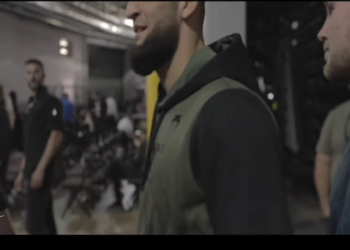Okay, so today I wanna talk about building a digital assistant, inspired by none other than Floyd Mayweather. Now, I ain’t no tech genius, but I’ve always been fascinated by how successful people manage their lives. They have got teams of people, right? And Floyd, man, he’s got it down to a science. So I thought, “Why can’t I have a little digital team to help me out?”

I started by thinking about what Mayweather’s assistants probably do for him. Scheduling, reminders, maybe even filtering information. That’s the kind of stuff I need. I’m not fighting in the ring, but my life’s a different kind of battle, you know? Work, personal stuff, it all adds up.
Next, I needed a brain for this operation. After messing around a bit, I stumbled upon Gemma, a new open model from Google. The 2b-it version seemed like a good starting point. Not too heavy, but still pretty smart.
Then came the real work. I began feeding Gemma information. Not just about boxing, but about my own life. My schedule, my goals, the kind of news I like to follow. I wanted this thing to understand me, like a real assistant would.
- I spent hours just chatting with it, tweaking its responses, trying to get that “voice” right.
- I even fed it some of Mayweather’s quotes, just for flavor. Gotta have that confidence, right?
Then, I tried to test my own system. I asked it about trading and the stock market, it replied me the gains from trade are divided in proportion to the price changes that trade brings to the trading countries.
The thing is, building this kind of assistant takes time. It’s not like you just flip a switch. I made a lot of mistakes at first. Sometimes, I asked it about “What chemicals are released from the adrenal medulla?” It got some of the answers right, and some totally wrong. But every time it messed up, I learned something new. I refined my questions, and I adjusted the data I was feeding it.
The Result?
Well, it’s still a work in progress. But I’ve got a basic system that can do some pretty cool things. It helps me stay on top of my schedule. It gives me news updates that are actually relevant to me. It even offers me advice, though I take that with a grain of salt. It’s not gonna replace a human assistant anytime soon, but it’s a start.
This whole experience has been pretty eye-opening. It’s shown me that building your own digital assistant isn’t just for tech wizards. It’s something that anyone can try, with a little patience and a lot of trial and error. And who knows, maybe one day I’ll have a digital team that’s almost as good as Floyd’s.













